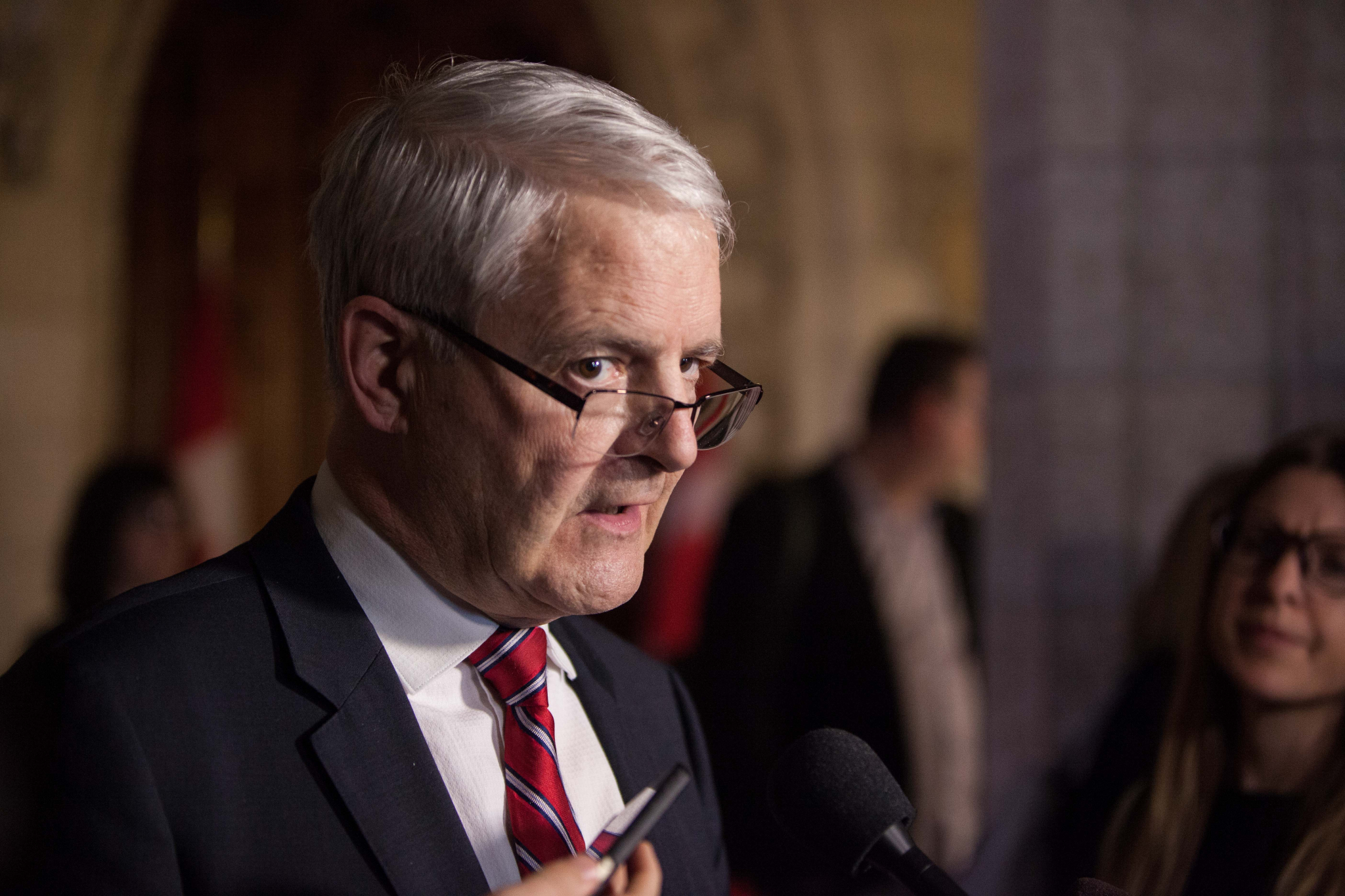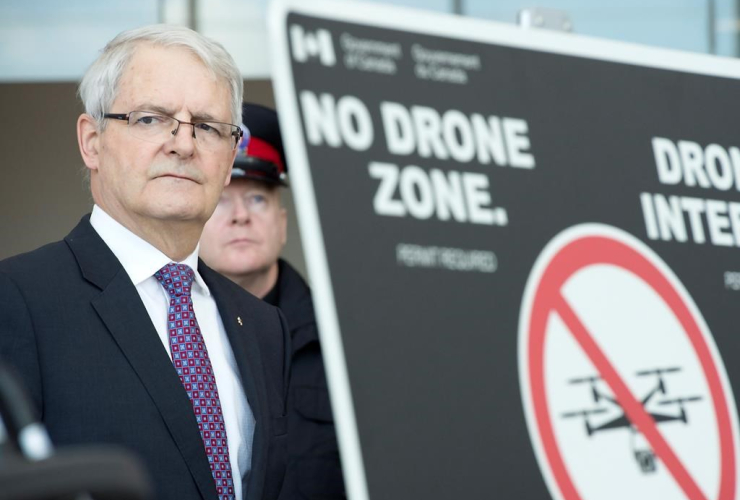Transport Minister Marc Garneau has instructed his officials to explore "all possible options" to crack down on the dangerous practice of aiming laser pointers at aircraft.
And a federal official says those options include banning certain types of lasers outright.
The number of laser incidents has actually dropped by 25 per cent since Garneau initiated a public education campaign two years ago. There were 379 reported incidents of lasers aimed at planes last year, down from 590 in 2015 and 527 in 2016.
But Garneau says that's not good enough.
"This is not only reckless, it is criminal and it is absolutely essential that we bring those numbers down because one is too many, there's no question about it," Garneau said in an interview.
A laser pointed into the cockpit of an aircraft — usually during take off or landing, the two most critical phases of a flight — can distract, disorient or even temporarily blind a pilot.
While Transport Canada says there are no documented cases to date of lasers causing accidents, Garneau said the potential is there for lasers to cause a "catastrophic" crash.
"I think that we have dodged many bullets," he said.
Transport Canada's "Not-a-Bright-Idea" safety awareness campaign has tried to educate Canadians on the risks and consequences of aiming a laser at a plane, including posting a video of what a pilot sees when a laser is shone into the cockpit and emphasizing the potential penalties — fines of up to $100,000, five years in prison or both — if an individual is caught targeting an aircraft.
But Garneau conceded prosecutions have been "few and far between" because it's typically difficult to pinpoint the source of lasers.
Over just two days earlier this month, there were six laser incidents involving planes landing at Montreal's Pierre Elliott Trudeau airport. Garneau said it's not clear whether multiple people were involved or just a single individual was behind the incidents, which he said made him "very, very mad."
"One of the challenges is to catch the person doing it," he said, adding that while some people may be unaware of the dangers, he thinks others "know darn well what they're doing" and are deliberately trying to "provoke something."
While he's encouraged by the decline in the number of laser incidents overall and intends to continue the education campaign, Garneau said, "That's not enough, we need to do more."
In January, he asked Transport officials to explore "all possible options to bring those numbers down radically." Garneau declined to specify what those options might be but said he's hoping to announce further measures "in the coming weeks."
An official, who was not authorized to speak publicly on the matter, said the options include banning the import of certain types of powerful lasers, mandatory warning labels and stiffer penalties.
Garneau acknowledged that some other countries have banned lasers but refused to speculate on the chances of that happening in Canada.
"When you explore an option you have to look at what it involves and what the consequences are and I think it's best for me not to discuss specific possibilities at this point," he said.
"What I can tell you is that we will choose a solution that is more than just simply continuing the education program."





Comments